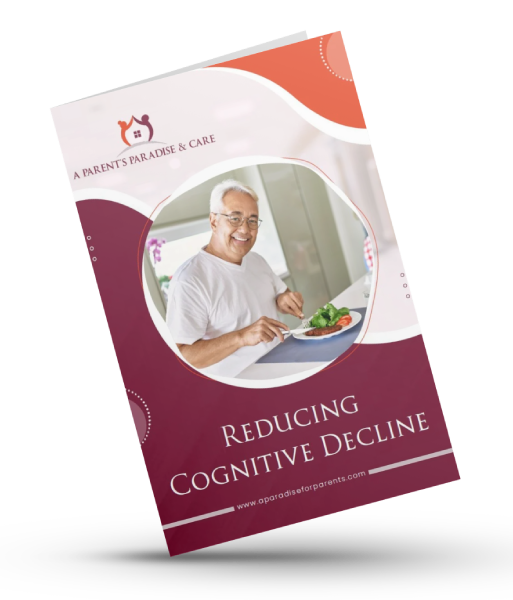Disclaimer: This article is for informational purposes only. Please seek tax advice from a qualified accountant, CPA or other tax professional about a Health Savings Account (HSA). There are some great HSA tax benefits, but your accountant will show you how to maximize tax benefits with HSA for your particular situation.
Most people are aware standard tax savings programs. Examples are 401(k) plans, individual retirement accounts, and more. However, there is one program that people are not familiar with. Health Savings Accounts have multiple tax benefits.
Applying for health savings account to save for future healthcare expenses is a smart move. HSA’s come with not just one, three separate tax benefits. The HSA tax benefits go beyond just good health care. It also means saving money.
What is a Health Savings Account?
A Health Savings Account is designed for people who are covered by the high-deductible health plans (HDHPs) but want more coverage. The contribution you or your employer makes go straight to the account. Each contribution is limited to a maximum amount every year. Over time you will be able to use the amount invested to pay for medical expenses covered by HSA. Covered expenses include dental, vision, and over-the-counter meds. At first glance you might be wondering how to maximize tax benefits with HSA when it seems like you are just saving for health care. Read on to find out.
How to Qualify for an HSA?
Since the HSA is paired with HDHP and offered by a health insurance provider, anyone who qualifies for HDHP may also qualify for a health savings account. An account may be opened at numerous financial institutions. For residents in Arizona, you can find HSA-compatible plans in your area by typing your zip code here.
In order to qualify for an HSA, you have to pass the standards placed by the Internal Revenue Service or the IRS. Which means you have to be qualified for a HDHP, not enrolled in Medicare, not dependent on another person’s tax return, and no other health coverage.
The only way to contribute to your HSA is through cash. If you are still employed, the HSA can be funded by you or your employer. Family members and other people can also contribute to a health savings account of an eligible individual. It’s perfect for families who want their aging parents financially secured should there be any medical expenses in the future. If you or your loved one is unemployed or self-employed, they may also contribute to an HSA as long as they are qualified to own a HSA in the first place.
Of course, the amount of money contributed has a limit. For every HSA, the contribution limit for self-coverage is $3,400 as of 2017. For people with families, it would be $6,750. People who are 55 years old or older by the end of the tax year are qualified to contribute a thousand more to their health savings accounts.
If your employer contributes to your HSA, his/her contribution is included in the limit. Which means that if your HSA calls for a $3,400 limit and your employer contributes $1400, you can only add $2000.
How to Maximize Tax Benefits with HSA?
Since we’re talking about digits and calculations, it would be easier to give you a real-life example with HSA tax benefits, not only in the initial years, but in the years to come as well.
HSA Tax Benefits #1: Pre-Tax Contribution
Mr. and Mrs. Smith are looking to save money for probable health expenses in the future. They decided to switch to a HDHP plan because the lower premiums appealed to them. However, Mrs. Smith wanted additional coverage for any out-of-pocket expenses such as visits to the doctor or prescription drugs. So she opened a health savings account
Mrs. Smith made sure that she was able to contribute to her HSA on a pre-tax basis. This means that the contributions made to an HSA are 100% tax-deductible (up to the legal limit), similar to the IRA. By the end of the year, Mrs. Smith contributed to a total of $4000 to the HSA.
Since the total contribution Mrs. Smith made is free of tax, this gives the Smiths $1000 more in buying power for medical expenses. They wouldn’t enjoy this additional thousand without a health savings account.
Here is a comparison on what the Smiths would have without HSA in a year:
| Without HSA | With HSA | |
|---|---|---|
| Income set aside for family health expenses (before taxes) | $4,000 | $4,000 |
| Minus 25% federal income tax | $1,000 | $0 |
| Money left for family health expenses | $3,000 | $4,000 |
#2: Tax-Free Interest
The Smiths are able to save more money to be used for medical expenses when needed since the interest earned on their HSA is tax free. The accumulated earnings can add up. It can be really beneficial in covering out-of-pocket medical costs, even with minimal rate of return.
In most cases, you would not need to use the money in your health savings account unless you actually need it. Therefore, you are able to watch your money multiply (tax-free!) for the next few years.
#3: Tax-Free Withdrawals
Contributing money to programs with tax benefits such as 401(k) or an IRA usually lets you pay taxes once you withdraw the money. But it’s a different case when it comes to health savings accounts. Should the Smiths need to withdraw money from their HSA in order to pay for qualified medical expenses, the money would be tax-free upon withdrawal.
How Does Savings From HSA Add Up?
It’s no doubt that the tax advantages from health saving accounts are beneficial for managing current and future costs of healthcare. In the even that Mr. and Mrs. Smith’s rate or savings and expenses are the same over the next 20 years, they are able to utilize their account to pay for medical expenses upon retirement.
To give you a clearer picture, here’s an estimate of what the Smiths would get over the course of 20 years with only a minimal return on their investments:
- Annual HSA contributions: $4,000 ($333.33 per month average)
- Federal income tax rate or bracket: 25%
- Interest rate or average annual rate of return: 2.5%
- State income tax rate: 0%
- Annual expenses to be paid with HSA savings: $2,000
If you look at the figures above, it means that the Smiths are able to accumulate $105,000 in their account for medical expenses in the next 20 years. Since they contribute $4000 every year, their total contribution would be $80,000.
With $1,000 in taxes being taken out every year, the Smith’s would only accumulate $3000 per year or approximately $78,000 over the 20 years without an HSA. That’s about $27,000 in tax savings by having an HSA.
How Can The Triple Tax Advantage Pay Off?
You can use the HSA balance and tax savings calculator if you want to know how much you or your elderly loved one’s savings can add up in the next 20 years,
The bottom line of HSA tax benefits is that applying for HSA savings can give you financial freedom when you retire. And knowing these advantages, you and your siblings will be keener on contributing to your elderly parent’s health savings account. The health savings account is a tax diversification program that ensures you or your elderly loved one will have more flexibility in terms of finances later in life.
At A Paradise for Parents, we really work with families to make assisted living as affordable as possible. We have a network of accountants, and other professionals who specialize in elder care services. They can show you how to maximize tax benefits with HSA. Please feel free to reach out and contact us and we would be happy to set you up with a referral to a qualified professional. You can reach out to our home page, or contact us directly at 623-295-9890 or info@aparadiseforparents.com.





